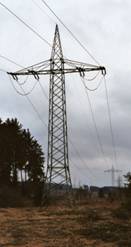Electric Utility Rate Restructuring
Electric Utility Power Rate Restructuring
The Transition to Market-Based Pricing
Reading Electric, a leading supplier of electro-mechanical equipment, services, and problem solver for Industrial and Commercial customers for over 50 years provides technical information to the Region’s Residential, Commercial and Industrial Community. This Bulletin provides information on the transition from rate caps to market-based pricing for electric utility power.
Under the 1996 electric competition law, electric utility rates charged by electricity companies were capped, and for the majority of the State’s electric consumers, utility rates remained capped. In the last 12 years, electric utility rates have remained capped despite the significant rise in costs in almost all aspects of electric power generation and distribution.
 Electricity consumers do have the right to choose an electric generation supplier; however, the rate caps have deterred generation suppliers from offering service. In those areas where the transition has been made, electric generation suppliers are beginning to offer alternatives to consumers. Today, on average, the cost of electricity throughout Pennsylvania is at or below the national average. However, as the rate caps expire in 2009 and 2010, it is expected that the cost of electricity will increase. In many cases this costs will be significant. In Baltimore, Maryland, customers of Baltimore Gas and Electric Co. saw rate increases to residential customers of approximately 72%. At this time, the rate increase in Pennsylvania cannot be predicted because of escalating demand, increasing fuel prices and increasingly stringent environmental requirements.
Electricity consumers do have the right to choose an electric generation supplier; however, the rate caps have deterred generation suppliers from offering service. In those areas where the transition has been made, electric generation suppliers are beginning to offer alternatives to consumers. Today, on average, the cost of electricity throughout Pennsylvania is at or below the national average. However, as the rate caps expire in 2009 and 2010, it is expected that the cost of electricity will increase. In many cases this costs will be significant. In Baltimore, Maryland, customers of Baltimore Gas and Electric Co. saw rate increases to residential customers of approximately 72%. At this time, the rate increase in Pennsylvania cannot be predicted because of escalating demand, increasing fuel prices and increasingly stringent environmental requirements.
The Pennsylvania Public Utility Commission is working on developing policies to mitigate the higher rate increases. In addition to these efforts at the State level by the PUC, there are measures that individual consumers can implement to reduce the cost of electrical energy. Actions that should be investigated are energy efficient equipment, peak demand shaving, and of course conservation measures.
The first step is to seek education on all aspects of the transition from electric utility rate caps to market-based pricing. Reading Electric will be conducting a series Technical Workshops throughout 2008 to increase the awareness level and education on the issues of pending rate increases, and actions that can be taken to minimize their impact.
(Information provide courtesy of PUC)
Contact Reading Electric for Electrical Equipment Efficiency Solutions and an opportunity to let READING ELECTRIC’s over 50 years of expertise serve you.

Recent Comments